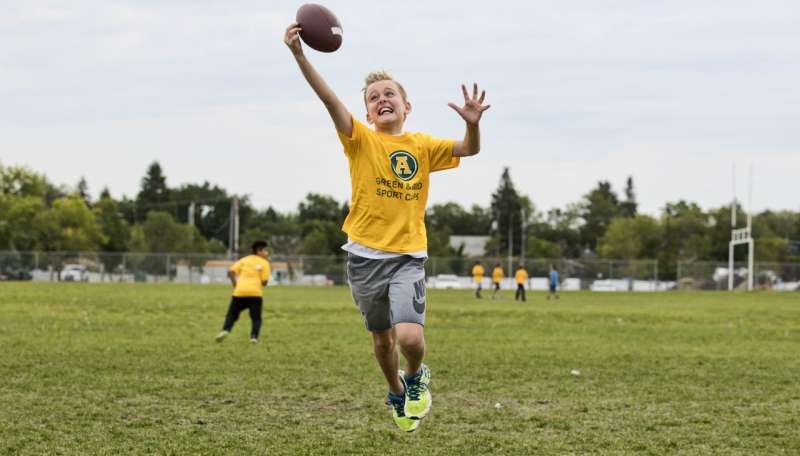Research on sport for youth development not reaching those who need it, study shows

Canadian-led research establishing that youth sport should be about building the whole person and not just the athlete needs to be more accessible if it is to find its way into the programming of the nation's highest sport bodies, according to a new University of Alberta study.
"Research projects led by researchers across Canada have been producing some of the best findings in how to make youth sport a better place for kids," said Kurtis Pankow, who is completing a Ph.D. in positive youth development through sport. "But we found sport associations weren't using it. That was when Nick (Holt, his supervisor) took a step back, reached out to other researchers and said, 'I think we have to do something about this.'"
The research that was missing the mark, Pankow said, revolves around the idea that sport should be used to develop better people.
He explained that traditionally, sport and youth programs have looked at kids as problems to be fixed as opposed to strengths to be developed.
"The whole field of positive youth development arose from the idea that problem-free doesn't mean fully prepared."
And with almost 80 per cent of Canadian youth participating in some form of sport, Pankow adds sport is a really good venue to help prepare kids for the rest of their life.
"Whether you're using research strategies or not, you have to be conscious that that is something you're trying to do," he said.
Research getting lost in translation
To examine barriers, opportunities and preferred communication strategies to better deliver youth sport, Pankow interviewed executive or technical directors from 19 national sport organizations.
"What we found was publishing something in a journal and expecting people to go find it, probably unsurprisingly, isn't really good enough," he said. "That's not something that they're getting paid to do, and most organizations don't have money to pay someone to do that."
Even if research made it to an administrator's desk, Pankow said, finding the time to understand and interpret it might be asking too much.
"Executives were saying, 'OK, this is a great study done with parents and tennis, but what does this mean for hockey?'" said Pankow. "They are not always sure how the research translates across sports."
Making evidence accessible
One recommendation on how to get best practices buy-in from the top sporting bodies, according to Pankow, is developing partnerships.
"Actually having a connection between researchers and organizations seems to be a really big part for them in terms of making this research more accessible," he said.
Another finding related to accessibility was use of social media.
"They told us, 'If you can package something in a way that we can retweet and don't have to change, that will make it way easier for us to share it.'"
Suspecting something was already being lost in translation, Holt's working group fired up various social media accounts (including @PYDSportNET on Twitter) in the winter of 2016 and started creating infographics and videos to better disseminate the research findings.
The first to implement some of the strategies from the study was Golf Canada, which partnered with Holt's colleagues at the University of Ottawa to piece together a golf in schools life skills program.
Locally, the U of A Golden Bears football team is now incorporating Holt's life skills work with the youth flag football program it runs.
Pankow said the format is based on a program Holt and former grad student Kacey Neely first introduced to some inner-city schools where a life skill forms the outline for learning a physical skill.
For example, coaches of a flag football team would use an athletic skill like receiving a pass to help illustrate the importance of a life skill like communication.
"We know that good things don't just happen in sport, so for good things to happen—like developing good people—you have to be intentional in what you're trying to do, and your behaviours have to reflect that."


















